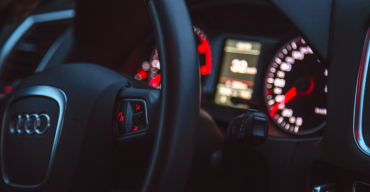The 2 Series Convertible seems less impressive value compared with the A3 Cabriolet, however, since the Audi’s flagship grade costs the same price as the entry level BMW.
Look closer, and the 135kW of power and 270Nm of torque made in the 220i Convertible helps it achieve a 0-100km/h acceleration time of 7.6 seconds – identical to the A3 Cabriolet 1.8 TFSI quattro flagship that produces 132kW/288Nm but is also heavier. The BMW also claims combined cycle fuel consumption of 6.4 litres per 100 kilometres, 0.2L/100km better than that Audi.
- The 228i has the same consumption as the top A3 Cabriolet
- Its tuned-up turbo engine produces 180kW/350Nm
- The 228i is only $400 cheaper than an S3 Cabriolet
- Audi makes 210kW, 380Nm and claims 5.5sec 0-100km/h.
Compared with the 1 Series Convertible, the 2 Series Convertible is 72mm longer (measuring 4432mm) with a wheelbase extended by 30mm (to 2690mm). Despite being only 26mm wider than before (at 1774mm), the tracks have been pushed out by 41mm at the front and 43mm for the rear wheels.
The question now is, of course, whether the 2 Series Convertible can go beyond facts and figures to prove itself a properly premium and genuinely good drop top. Curiously, however, each car on test also had an option within the sport setting to change chassis settings, which is usually a feature BMW admits is only reserved for cars with adaptive suspension; yet it insists none at the launch had adjustable dampers.
All of those cars were once just a dream in somebody’s head. The cars we drive say a lot about us.
It may come as a surprise to some that the BMW 2 Series Convertible has reasonably large shoes to fill in our market. The roof mechanism itself is now a five-layer fabric, up from four layers before, and this contributes to top-up quietness that BMW claims mirrors the coupe all the way up to 150km/h. When you want to whip it off, that fully electric process will take 20 seconds at speeds of up to 50km/h.



